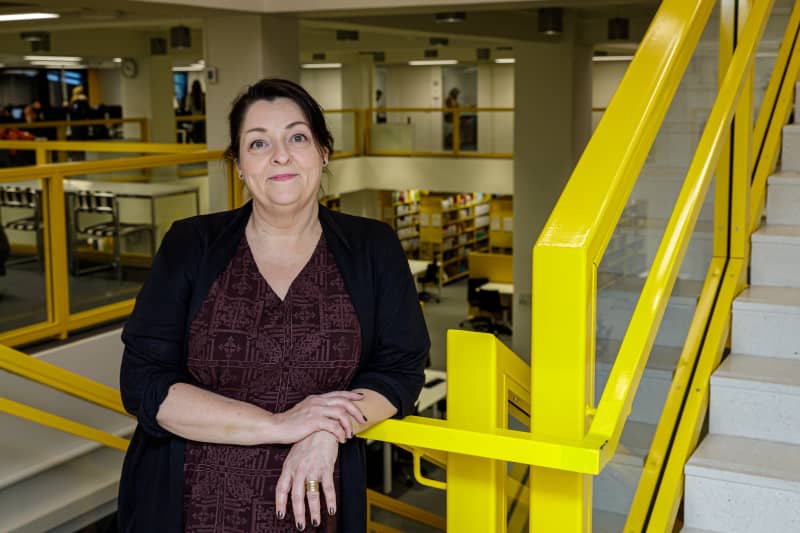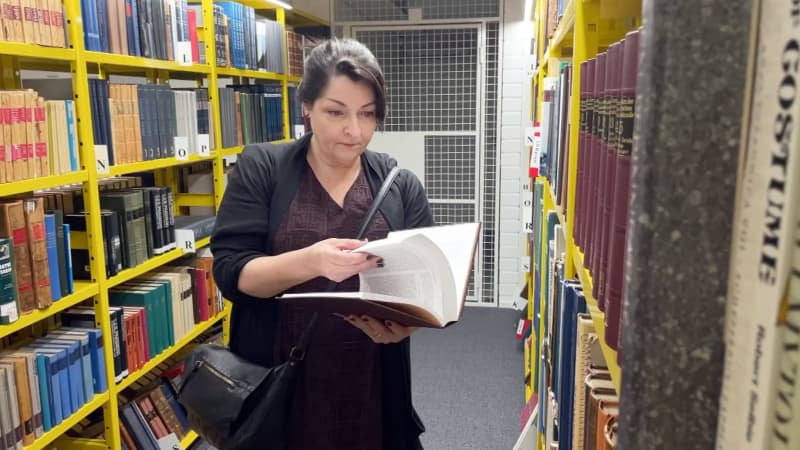
Tuija Saresma, PhD, boldly highlights the impact of hate speech on researchers, science and society.
The Finnish Union of Science Authors, which awarded the prize, appreciates Saresma’s courage as a scientist to bring her tough research topics, such as cyber hate and hate speech, into the public debate.
Dr Saresma is a university lecturer and associate professor of contemporary culture studies at the University of Jyväskylä. She is also Associate Professor of Gender Studies at the University of Helsinki and Associate Professor of Cultural Studies, especially Gender Studies, at the University of Eastern Finland.
Saresma led the Government-commissioned Cyber Hate project, which published its report in June 2022, examining, among other things, the producers and spreaders of online hate.
– For me, the most shocking thing was that some of the online hate is deliberately aimed at political goals, i.e. very ideological hate speech, the purpose of which is to silence certain groups of people.
Up to thousands of nasty Twitter messages
Saresma has not relented, even though he himself says that he has often been the target of harassment, i.e. mass harassment. According to Saresma, it happens every time he is in public with hate speech topics.
– Someone directs people at me and, for example, there are hundreds, even thousands of nasty messages on Twitter. But I feel I have to talk about these because people need to be informed.
Saresma assures that the nerve has withstood the active scoring quite well, even though it is not always easy.
– Maybe I’m made of glass in such a way that sometimes there will be breaks.
According to the Union of Science Workers, scientists and their work are increasingly subject to inappropriate comments and threats on social media. According to the association, it endangers the freedom of research protected by the constitution. Saresma has actively and with factual justification opened up in public the effects of hate speech on the researcher’s work, science and, more broadly, on society as a whole.
– It has been thought that hate speech is mainly aimed at marginal groups, for example racialized women, but more and more it is directed upwards, as it were, at politicians, journalists and researchers.

Fear leads to self-censorship
Scientists are worried that some researchers are already afraid of being harassed or targeted.
– Many colleagues think a lot about whether they want to appear on social media about these topics or whether they even do research on certain topics. Yes, researchers’ self-censorship is already a fact, says Saresma.
Maija S. Peltola, president of the scientists, emphasizes that it is of the utmost importance for Finland’s mental and economic well-being that decision-making is based on high-quality, versatile research.
– It must not be limited by political or other grounds.
Saresma sees the pursuit of hate speech as dangerous and even a threat to freedom of speech.
– Hate speech aims to undermine trust in the research community, the university, but also in the judiciary, the police and the media, and in the end it is about crumbling and destroying democracy.
Democracy is not unbreakable
Saresma considers the defense of democracy very important even in democratically strong Finland, but at the same time warns that it is not unbreakable.
– The sad news recently came from Germany, where an attack on the parliament building was planned.
Saresma admits that it has not yet been possible to clearly understand where the hate speech comes from. Hate speech is spreading more from some concentrations and individual accounts, but the sources are not sufficiently known.
– In addition to machine-made groups of messages, there are also posts made by individual people in their anger.
Although there are already several social media platforms and the number is only growing, Saresma is not worried about the number of people spreading online hate.
– There are several hundreds of actors spreading online hate in an organized and deliberate manner on Suomi-Twitter, who get other people to join them, but luckily the number is relatively small.
– I don’t understand how anyone can think that absolute and completely irresponsible freedom of speech is necessary. Especially when hate speech harms people and even incites violence, sighs docent Saresma.

